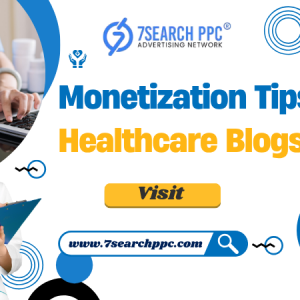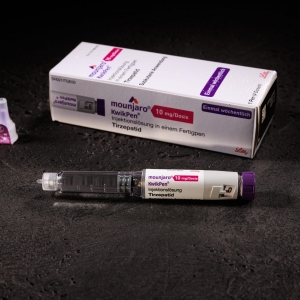The healthcare industry is rapidly transitioning into the digital space, making it ripe for monetization opportunities. From telemedicine to health blogs, healthcare websites now offer valuable content, products, and services that cater to users across the globe. If you're running a healthcare website, you might be wondering how to turn your traffic and content into a steady income stream. This comprehensive guide explores everything you need to know about monetizing a healthcare website, diving deep into proven strategies and how they align with the current healthcare data monetization market.

Understanding the Value of Your Healthcare Website
The first step in monetizing a healthcare website is recognizing its value. Unlike general blogs or entertainment websites, a healthcare website deals with sensitive and highly sought-after information. Whether you're offering wellness tips, disease prevention guides, or detailed health reports, your content holds credibility and trust, two things that advertisers and consumers respect. With proper planning, a well-structured monetization model can lead to substantial health website earnings without compromising the quality or trustworthiness of your healthcare website content.
<<Start Monetizing Now>>
Different Types of Healthcare Websites Suitable for Monetization
Healthcare websites come in various formats, each offering unique monetization paths. For example, a blog focused on fitness and nutrition may benefit from affiliate marketing, while a telehealth platform might integrate paid subscriptions. Medical news websites, wellness portals, and pharmaceutical resources can all find specific strategies to enhance revenue streams while remaining compliant with health regulations.
Advertising as a Primary Revenue Model
One of the most common ways to monetize a healthcare website is through advertising. With the help of ad networks like Google AdSense or health-focused platforms, publishers can serve contextually relevant ads. These could be for medical devices, fitness products, or wellness services. It’s essential, however, to ensure these ads align with your audience’s expectations and medical regulations. Too many irrelevant ads can lead to a drop in credibility.
High-paying CPM networks also contribute to a health website's earnings, especially when your site attracts significant traffic from high-income regions like the US, UK, or Canada. Programmatic advertising is another layer to explore, where real-time bidding places ads intelligently based on user behavior and content engagement.
Affiliate Marketing for Health Products and Services
Another effective strategy in monetizing a healthcare website is affiliate marketing. This involves promoting products such as supplements, fitness equipment, or healthcare tools in exchange for a commission on each sale generated through your referral. Health product reviews, recommendation articles, and comparison content work well in this model. It’s crucial to maintain transparency and disclaim any affiliate relationships to comply with trust standards in healthcare content.
Affiliate networks specific to the medical or wellness industry often offer better commission rates and targeted product selections, increasing the potential for revenue without damaging user trust.
Creating and Selling Digital Products
Digital products can provide a steady source of income while positioning your website as a thought leader. E-books, health plans, fitness guides, or nutrition charts are relatively low-cost to create and easy to distribute. These resources work especially well when your healthcare website content builds a loyal audience over time.
Subscriptions to exclusive content such as professional insights, medical research digests, or downloadable resources can be bundled into premium memberships. This model promotes recurring income, which is highly sustainable and less volatile than ad-based models.
Offering Online Consultations and Telemedicine
With the digital health boom, many healthcare websites are transitioning into platforms offering online consultations. If your site involves licensed practitioners, you can charge users for direct medical consultations, wellness coaching, or even psychological counseling.
Booking systems, secure video conferencing integrations, and payment gateways are essential here. Compliance with HIPAA and local data protection laws is critical in this model, particularly when personal health information is being handled.
Lead Generation for Healthcare Services
Healthcare providers are often looking for high-intent leads for treatments or services. Your website can serve as a funnel for these providers, earning you money in the process. For example, if you write about dental health and have partnerships with dental clinics, you can redirect interested users to their services and get paid per lead.
Lead generation works well in niches like cosmetic surgery, weight loss programs, and alternative medicine, where customers actively seek consultations or services.
Exploring the Healthcare Data Monetization Market
Data is one of the most valuable commodities in the digital age, and the healthcare data monetization market is no exception. Websites can gather user behavior data (in compliance with privacy laws) to derive insights for research firms, marketing agencies, or product developers.
For example, analyzing how users interact with health-related content or tools can offer useful analytics to businesses looking to tailor their products to customer behavior. However, it is imperative to anonymize data and follow GDPR, HIPAA, and other regulations before sharing or selling user information.

Sponsorships and Collaborations
Brands in the health, wellness, and pharmaceutical industries often collaborate with trusted publishers for sponsored content. This includes articles, interviews, product launches, and even webinars. Your site’s authority, design, and engagement metrics influence your chances of securing high-paying sponsorship deals.
This method not only boosts health website earning but also brings fresh content to your audience. However, transparency is key. Always label sponsored posts and make sure they align with your ethical guidelines and the expectations of your audience.
SEO and Content Optimization for Better Monetization
Search engine optimization (SEO) is essential in increasing your visibility and growing organic traffic. More traffic means more ad impressions, affiliate clicks, and potential leads. Focus on creating authoritative, keyword-rich content while ensuring fast loading speeds and mobile compatibility.
Use the focus keyword monetizing a healthcare website in meta descriptions, headers, and throughout your content where appropriate. Also, target secondary keywords like healthcare website, health website earning, and healthcare data monetization market to expand reach and visibility.
Long-form, well-researched blog posts, patient stories, interactive tools like BMI calculators, and informative videos can increase session time and reduce bounce rate, all of which contribute to better ad earnings and higher rankings.
Email Marketing and Subscriber Engagement
An email list is a valuable asset in the monetization journey. By offering a free resource like a diet plan or mini-course in exchange for an email subscription, you can build a qualified list of engaged users. Regular newsletters with health tips, exclusive offers, or new content updates can lead to increased return visits and click-throughs on affiliate or sponsored content.
Incorporating drip campaigns and segmentation allows for more personalized messaging, which increases conversion rates whether you're promoting digital products or affiliate offers.
Legal Considerations and Compliance
When monetizing a healthcare website, compliance isn’t optional—it’s mandatory. Whether it’s displaying ads, collecting emails, or offering consultations, your site must adhere to healthcare regulations such as HIPAA (in the U.S.), GDPR (in the EU), or local equivalents.
Having a clear privacy policy, data handling terms, medical disclaimers, and content verification processes helps protect you legally and builds trust with your users.
Conclusion
Monetizing a healthcare website successfully requires a mix of ethical responsibility, technical understanding, and strategic content planning. By leveraging display ads, affiliate marketing, digital products, lead generation, and healthcare data insights, you can turn your health platform into a sustainable income source. While the opportunities are immense, your priority must always remain on delivering trustworthy, high-quality healthcare website content. With the right tools and a clear roadmap, your website can not only inform and empower but also generate steady revenue in the growing healthcare data monetization market.











